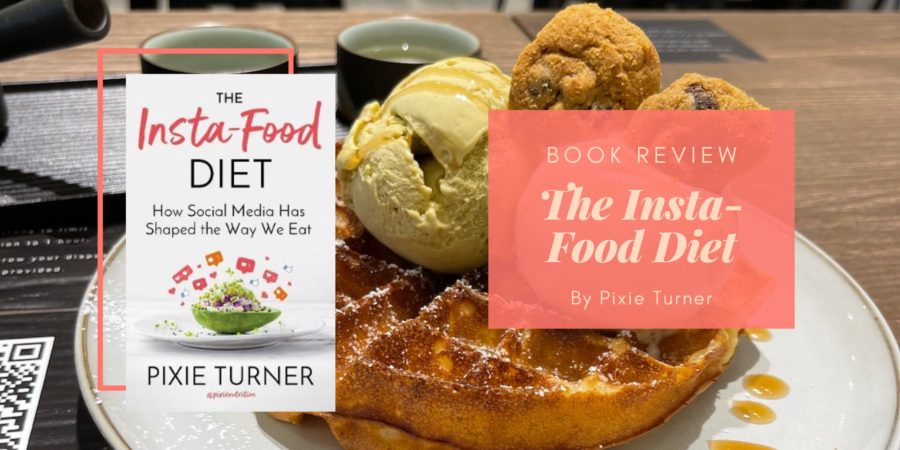This is, perhaps unsurprisingly, another book I found on Instagram! The lovely AqilahReads talked about this book and it intrigued me so I added it to the TBR list!
If you are familiar with the criticisms of social media, not much of this book will be new to you. However, The Insta Food Diet’s food-specific focus is interesting and pretty much the reason I read this. In this book, Turner discusses a range of topics, from how Instagram is affecting our eating habits, diet trends and food shaming, to even how social media can impact the world.
Turner brings up some good points, like how tracking behaviours can lead to unhealthy behaviour and how social media can push extreme diets easily (she even predicted a rice diet, which I remember seeing some time last year!) but something about her book feels lacking to me. I talked about it a bit in my review on The Geography of Thought, but it’s clear Turner writes from a very Western perspective and hasn’t really considered other cultures – the chapter on food blogs and culinary plagiarism doesn’t even touch on cultural appropriation vs appreciation, or even the concept of how to respect other culture’s dishes. Take, for example, the New York Times’s terrible video on Singapore Chicken Curry, which was so bad that it had to be removed. The person who made that video was Asian, but because she wasn’t familiar with Singapore’s culinary scene, she messed up the recipe. That this even made it past whatever screening standards I imagine are in place at a media outlet as big as the NYT shows the lack of consideration given to non-Western cultures (did they think that any Asian could pull off another Asian recipe?).
At times, the book feels rather unclear in the points it wants to make. Turner spends a good amount of time talking about the negative parts of social media, and at the end of the book starts talking about the positive side. The main argument is that social media can impact policy by consolidating the power of the many, but Turner never clearly addresses the question: how should the average social media user differentiate between reliable and unreliable sources of information, especially when it comes to niche topics? After all, she has called out even doctors for promoting “Food as Medicine”, so clearly a medical degree is not enough.
For all its flaws, The Insta-Food Diet does do a good job talking about the possible negative impacts of social media on the way we eat. I’m not sure if I will be enthusiastically recommending it, but if anyone comes to me with a very niche request of “I want to read a non-fiction book about social media and food”, I suppose this is what I will be recommending (with a few caveats).

This sounds as though it fills a little gap in the market, but not very well. It’s a pity that this wasn’t more well written and that it only focuses on the Western side of social media
Yes, it would have been interesting to explore things from various perspectives!